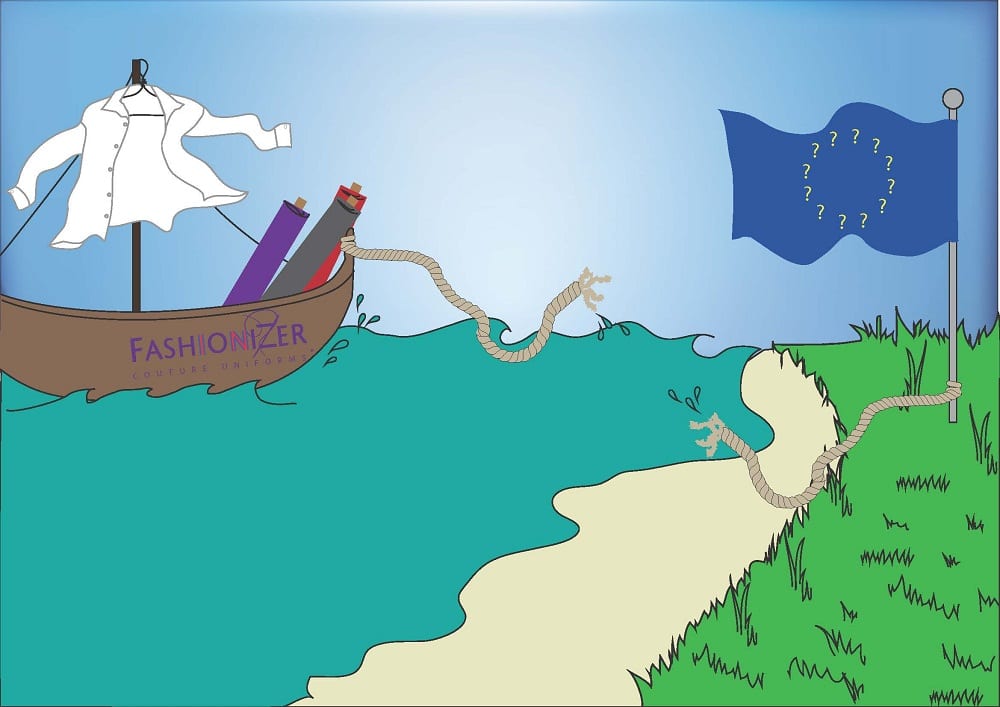
Why Remaining in the European Union is Best for Business
Reading Time: 4 minutesIn just over five weeks’ time we will know if the UK will still be part of the EU or whether we have voted to cast ourselves adrift from the European mainland. As a business that operates both within and outside the EU, it is a decision that will have a significant impact on the way that Fashionizer trades.
So we’re going to lay our cards on the table at the outset. We’re in.
Europe is part of the fabric of Fashionizer (if you will forgive the pun). We source our materials in the EU, and our garments are manufactured in Europe, because we can be sure of the quality, standards and working conditions – all things that are important to our clients too.
Our office reflects our international approach: Brits working alongside French, Italian, Romanian and Polish people. We have high standards and that breadth of choice works for us. We are able to recruit from a bigger talent pool, and from a wider range of skills. With a client base that extends across all continents, having people who can speak to potential customers in their own language is a distinct advantage.
So what could Brexit mean for Fashionizer? Part of the problem is that nobody really knows, but we all have a view. So what do our team think? They have grass-roots experience of dealing with suppliers and clients both inside and outside the EU, so it’s a very personal perspective.
The EU according to the Fashionizer team
Without getting too technical about it all, trading within the EU amounts provides us with a big shortcut. Import and export duties, transfer of goods, VAT rules are simplified and have been streamlined over the years.
“Currently, we only really have a lot of paperwork if we are sending uniforms to businesses outside the EU,”says Rachel, our resident Scottish-American production co-ordinator. For her, exporting to non-EU countries involves completing a raft of forms detailing commodity codes, provenance, composition of the garments and where they were manufactured. The prospect of spending more time filling in forms and less time producing high quality uniforms is not something she would look forward to…
Robert, our warehouse assistant is the man responsible for sending out uniforms and the one who has to wrestle with customs departments and import duties in non EU countries.“We would be at the mercy of the individual whims of other countries. They could impose all sorts of duties which we would have to pay. Taking control? For us it would be the opposite of that.” It is also personal for Robert: he’s a Brit who did his degree in the Netherlands. “I owe my degree to the EU.”
“VAT and tax rules would have to change and it is not clear how this would look or work. How that would impact on our cash-flow is unknown as is the effect that Brexit could have on the value of sterling. We would need to completely change our financial models,”says Debbie Leon, founder and MD.
But above all, it is the ‘what-ifs’ – the unknown results as the UK tries to unpick relationships and systems that have stood since 1973. “It’s a bit scary,” says our French marketing co-ordinator, Marion. “It is the uncertainty. I don’t know if I would need a visa or special paperwork or even have the right to work here at all.”Fashionizer’s loss would be the rest of Europe’s gain.
- At Fashionizer we don’t do anything by halves… we’ve plenty more to say on why remaining in the EU would be best for our business. Watch this space.
Comments: 0




